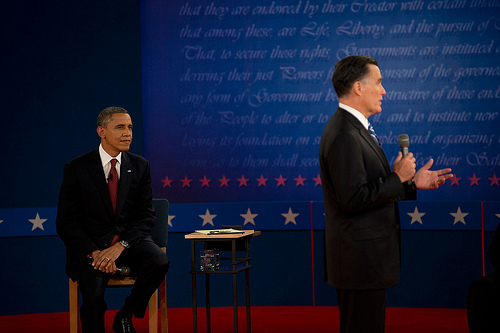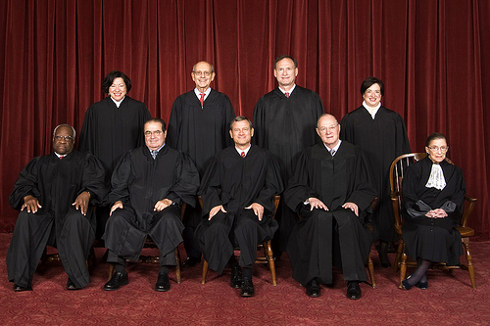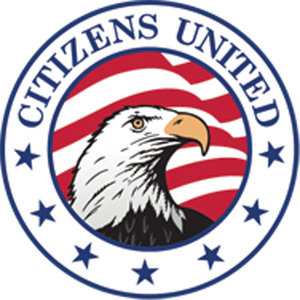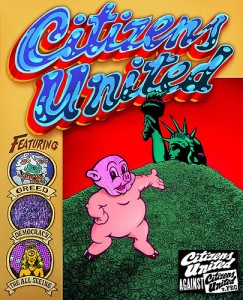Why We Should Replace the Commission on Presidential Debates with an Independent Non-partisan Body

The Commission on Presidential Debates (CPD) sounds like an official body, but in fact it is a private non-profit corporation owned and controlled entirely by Republican and Democratic party operatives. Most of the CPD budget is provided by for-profit corporations and their lobbying groups. The CPD undermines the interests of Americans in many ways, including:
- It deliberately excludes viable independent and third party candidates from participating in any debates (the opposite of the parties’ practice in their own primaries of enabling all serious candidates to appear in at least one debate.)
- It creates restrictive formats with minimal follow-up, and pre-determined topic areas allow the candidates to memorize and recite soundbites to an excessive degree, diminishing substantive debate.
- CPD-chosen moderators ask questions that emphasize solely the differences between the two controlling parties and their candidates while ignoring critical issues on which they concur, or at least share disinterest in confronting. See our analysis of the 2000 Bush v Gore debates, for example.
Since the 2020 election seems unlikely to feature a credible third-party or independent candidate, it’s an ideal opportunity to illuminate why replacing the CPD will better inform the public, regardless of who participates.
CPD Documents
- The-2012 Memorandum of Understanding Between the Obama and Romney Campaigns. This document dictates nearly every conceivable aspect of all four 2012 debates staged by the CPD.
- See our take on the memo’s release.
- See the CPD website for their own story.
Reporting on the Debates
- Interview with George Farah on the ways to reform the presidential debates.
- Rules for presidential debates: a perfect microcosm of U.S. democracy (Oct 16, 2012) – describes the ways in which the debates are governed by secret collusion between the two parties.
- Three Sponsors Dump the Presidential Debates While Citizen Groups Call for Disclosure of Agreement
- Replace Bi-partisan Shows With Real Debates (Unfortunately, almost every critique in our 2004 overview applies today)
- How candidates are kept out of the debates
- Canada’s largest radio network, the CBC, hosted this Oct 22, 2012 debate (starts at 3:20) between Reclaim Democracy founder Jeff Milchen and ardent CPD defender Diana Carlin (audio currently unavailable)
Other Resources on the Debates
- Our analysis of the transcripts from all three presidential debates in 2000 yield telling data
- Notable quotes on the debates
So what’s the alternative?
A Citizens’ Debate Commission which employs criteria resembling that proposed by the Appleseed Citizens’ Task Force on Fair Debates.
- See Open Debates for many other relevant articles on the debates, including details on these concerns:
- The CPD is financed primarily by multinational corporations
- The CPD awards the candidates absolute control over the debate process
- The CPD shields the Democratic and Republican party nominees from public accountability
- Open Debates argues the CPD violates FEC and IRS regulations
Photo from barackobamadotcom flickr page






